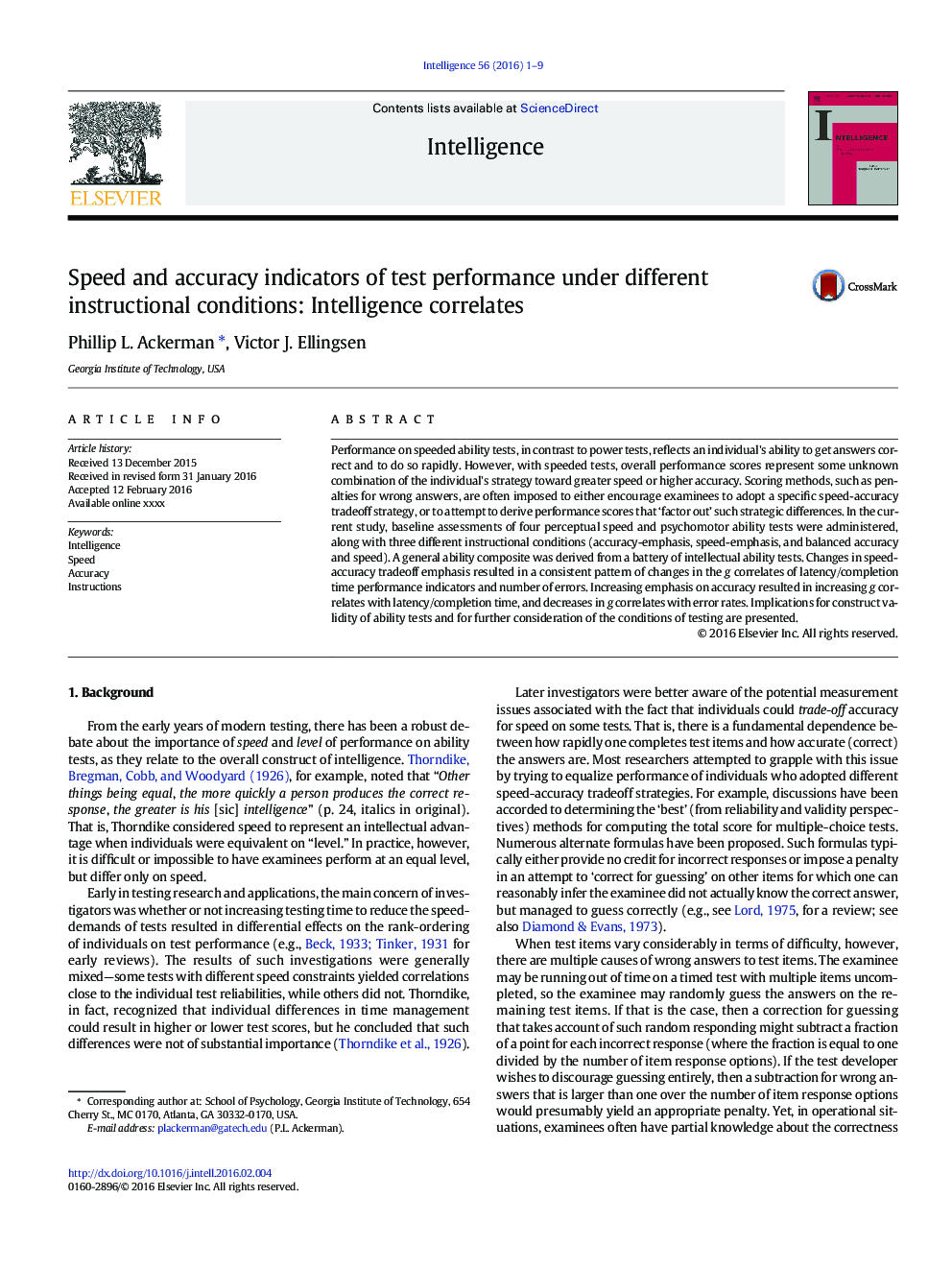| Article ID | Journal | Published Year | Pages | File Type |
|---|---|---|---|---|
| 7293180 | Intelligence | 2016 | 9 Pages |
Abstract
Performance on speeded ability tests, in contrast to power tests, reflects an individual's ability to get answers correct and to do so rapidly. However, with speeded tests, overall performance scores represent some unknown combination of the individual's strategy toward greater speed or higher accuracy. Scoring methods, such as penalties for wrong answers, are often imposed to either encourage examinees to adopt a specific speed-accuracy tradeoff strategy, or to attempt to derive performance scores that 'factor out' such strategic differences. In the current study, baseline assessments of four perceptual speed and psychomotor ability tests were administered, along with three different instructional conditions (accuracy-emphasis, speed-emphasis, and balanced accuracy and speed). A general ability composite was derived from a battery of intellectual ability tests. Changes in speed-accuracy tradeoff emphasis resulted in a consistent pattern of changes in the g correlates of latency/completion time performance indicators and number of errors. Increasing emphasis on accuracy resulted in increasing g correlates with latency/completion time, and decreases in g correlates with error rates. Implications for construct validity of ability tests and for further consideration of the conditions of testing are presented.
Related Topics
Social Sciences and Humanities
Psychology
Experimental and Cognitive Psychology
Authors
Phillip L. Ackerman, Victor J. Ellingsen,
